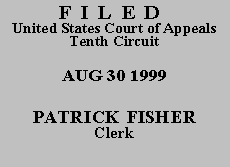

| UNITED STATES OF AMERICA,
Plaintiff-Appellee, v. PHILLIP VARNELL, Defendant-Appellant. |
|
Defendant Phillip Varnell entered a conditional guilty plea to conspiracy to possess with intent to distribute marijuana, a violation of 21 U.S.C. §§ 846, 841(a)(1) and (b)(1)(B). He appeals the district court's order denying his pretrial motion to suppress the evidence found in a search of his residence on the ground that the search warrant was not supported by probable cause. He also objects to the prosecution's proposed use of witnesses as violative of the federal gratuity statute. We have jurisdiction under 28 U.S.C. §1291 and affirm.
Defendant asserts that the affidavit in support of the search warrant does not state that contraband was observed either on defendant's person or at his residence. Therefore, he argues, probable cause was lacking for a reasonable belief that evidence of a crime would be found at his residence.
Our review of the district court's factual findings is for clear error. See United States v. Myers, 106 F.3d 936, 939 (10th Cir. 1997). "[T]he reasonableness of a search and seizure under the Fourth Amendment is a question of law which we review de novo." Id. To determine whether there was a substantial basis for a finding of probable cause we examine the totality of the circumstances. See Illinois v. Gates, 462 U.S. 213, 238 (1983). A reviewing court should "'determine whether there is substantial evidence in the record supporting the magistrate's decision to issue a warrant.'" United States v. Glover, 104 F.3d 1570, 1577 (10th Cir. 1997) (quoting Massachusetts v. Upton, 466 U.S. 727, 728 (1984)). Great deference is paid to the magistrate's determination of probable cause. See id.
Here, the affiant, a Special Agent with the Drug Enforcement Administration, began the affidavit with an account of his extensive experience in drug detection. He then stated that drug dealers often maintain books and records pertaining to the distribution of controlled substances, as well as large amounts of currency, among other things, in their residences or businesses. "This court has held that [a] magistrate is entitled to rely on the expert opinions of officers when supporting factual information is supplied in the affidavit." Id. at 1578 (quotation omitted).
The affidavit described information related by a reliable confidential source concerning defendant's involvement in drug trafficking at his residence. On two occasions, the confidential source observed an individual named Stegal emerge from defendant's residence carrying a one-pound block of frozen marijuana. See App., affidavit, paras. 3, 5. The confidential source also related conversations with defendant regarding defendant's drug trafficking business. See id. paras. 6, 22, 23, 25, 26. Those conversations indicated that defendant was engaged in an ongoing drug trafficking conspiracy. Accordingly, the totality of the evidence contained in the affidavit supports the conclusion that there was a fair probability evidence of an illegal drug conspiracy would be found at defendant's residence.
For his second argument, defendant challenges the prosecution's intent to call as witnesses his co-defendants who were promised a reduced charge or prosecutorial immunity if they testified against him. Relying solely on United States v. Singleton, 144 F.3d 1343 (10th Cir. 1998), he claims the prosecution violated 18 U.S.C. § 201(c)(2). Singleton, however, was reversed, and we are bound by the en banc ruling that § 201 does not prohibit a prosecutor, acting as an agent of the government, from making "a concession normally granted by the government in exchange for testimony." See United States v. Singleton, 165 F.3d 1297, 1302 (10th Cir.) (en banc), cert. denied, 119 S. Ct. 2371 (1999).
The judgment of the district court is AFFIRMED.
Entered for the Court
Circuit Judge
*. This order and judgment is not binding precedent, except under the doctrines of law of the case, res judicata, and collateral estoppel. The court generally disfavors the citation of orders and judgments; nevertheless, an order and judgment may be cited under the terms and conditions of 10th Cir. R. 36.3.